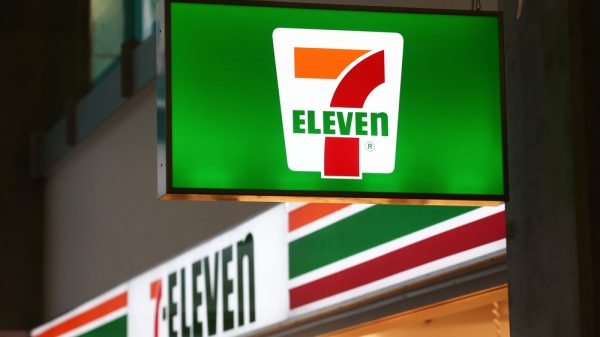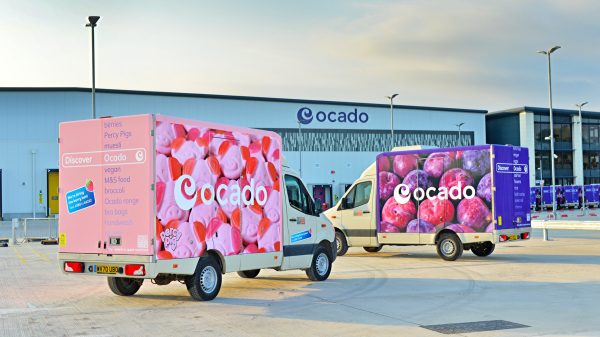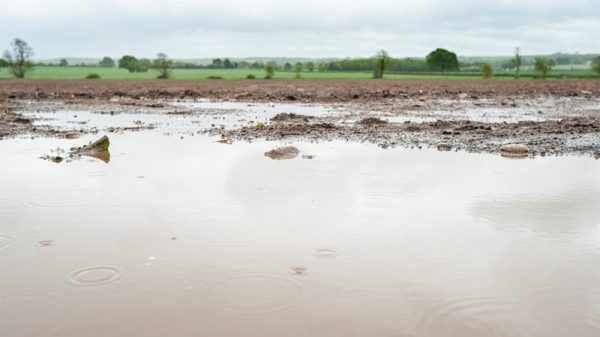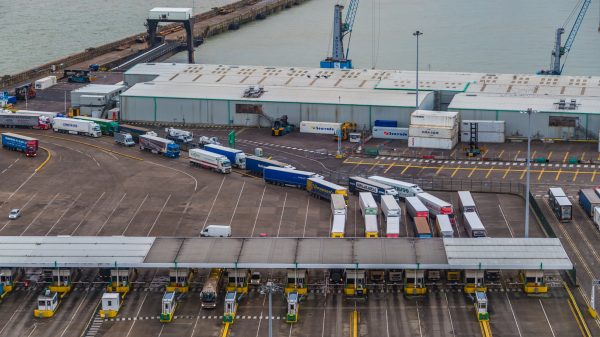Over the past week, shoppers have seen shelves which were once full of fresh fruit and vegetables now completely empty as supermarkets across the UK face widespread shortages.
As a result, consumers shopping at Aldi, Tesco, Asda and Morrisons have been subject to rationing – causing another blow to household shopping habits at an already pressure-filled time amid the cost-of-living crisis.
At the beginning of last week, British Retail Consortium director of food and sustainability, Andrew Opie, attributed the shortages to “difficult weather conditions in the South of Europe and Northern Africa”. While that’s certainly true, the shortages can also be attributed to British growers cutting back on production due to the skyrocketing costs of heating greenhouses.
Many industry experts have also pointed at Brexit – claiming the UK’s current position has left it vulnerable as trade links have become less secure than they once were.
The UK’s leading supermarkets met with farming minister Mark Spencer this week. He called on “supermarket chiefs to get shelves stocked again and to outline how we can avoid a repeat of this.” According to reporting by The Grocer, the source revealed that “little came from the meeting,” other than “urging greater support by the government,” and continued reassurances that things were being sorted out by retailers.
However, as environment minister Thérèse Coffey expects shortages will “last about another two to four weeks”, Grocery Gazette investigates how retailers can fix the issues and make their supply chains more resilient…
The vegetable shortage crisis: what happened?
In mid-February, supermarkets were struck with shortages of tomatoes, as growers struggled to afford to heat their greenhouses due to rising energy prices.
Thanks to new post-Brexit administrative checks, the farming industry has also seen seasonal labour shortages, leaving gaps in a workforce which would previously have been made up of European Union workers, causing further delays in the supply chain.
Since then, fruit and veg including onions, peppers, cucumbers, potatoes and raspberries have also been much harder to get hold of, with supplies drying up almost completely in some cases. While a difficult situation to manage in PR terms, rationing has been widely hailed as the best way to deal with the short-term issue.
However, many believe that retailers have become too reliant on daily warehouse replenishments and decreased in-store inventory, with e2open’s Gary Barraco pointing out that “even the slightest disruption is having an immediate impact on a product’s availability.”
He says that empty shelves will affect supermarkets by not only losing customers in the short-term, but also by affecting long-term brand loyalty, adding that the availability and delivery of goods is an “essential part of the customer experience.”
“Unless sellers, makers and movers change the way they do business, empty shelves will become the norm.”
While CI&T chief growth officer, Rebecca Crook agrees that “the weather, war and rising energy costs have all contributed to the situation,” she says that “a spotlight needs to be shone on British retailers who want to sell food at a very low price, meaning farmers or producers sometimes lose money because it’s below the cost of production”.
In December, a report by food and farming charity Sustain looked into five everyday foods, such as apples, cheese, beef burgers, carrots and bread – and found that UK farmers are often left with less than 1p on produce and see less than 1% of the profit.
Crook added: “The challenge is supermarkets not wanting to raise prices as they do not want to lose customers.”
Farming under pressure
Over the past year, suppliers have absorbed additional costs across production, fertiliser and energy to stop prices from skyrocketing even further.
For food growers and producers, the added pressures of the environment, poor weather conditions and the avian flu crisis – which resulted in turkey and egg shortages – has come as an additional strain on budgets.
Last month, National Farmers’ Union president, Minette Batters warned “we’re seeing the lowest levels of tomatoes and cucumbers produced since records began in 1985.”
Speaking of the issues, Save British Farming chair Liz Webster told Grocery Gazette that farmers would like supermarket powers to be limited.
“The egg industry experienced a collapse because the supermarkets didn’t want to pay a fair price. Farmers are looking at all this going, ‘there’s no point in doing this any longer.'”
She adds that Brexit has had a large part to play in the current fruit and vegetable crisis and that she was calling on the government a year ago to free up trade again.
“It was obvious it was going to cause food shortages because farmers were struggling to afford fertiliser”, she said, adding that the prices are “ludicrous.”
Webster says that Brexit has “definitely had an impact on ensuring that Britain has higher inflation that everybody else,” adding that this has removed the protection offered as a result of being in the EU.
“Because we have difficult weather here and a short growing season, we know that in order for domestic supply to withstand competition from warmer climates with more land, the government has to intervene to protect British agriculture.”
Can supermarkets make their supply chains more resilient?
Where supply chain disruption continues to be an ongoing risk, supermarkets and retailers need to be able to identify dependencies and potential pain points before they even happen.
“Only then can they proactively manage supply chain challenges and prevent product shortages to meet customer demand,” says Infomatica VP Greg Hanson.
“Supermarkets need to have a single 360 view of all their supplier profiles to navigate turbulence. Being able to see and understand these relationships is crucial to identifying alternative suppliers and getting the right products to the right places in a matter of weeks.”
In the long-term, he believes this will be “key to building more resilience into global supply chains.”
Barraco agrees that investment into end-to-end supply chain management platforms will be “critical to mitigate the impact extreme weather has on stock”.
“Companies that utilise modern, connected technology solutions for planning and logistics will fare best in an ever-changing environment, and when bottlenecks arise, they can maintain brand reputation for providing the best service possible.”
From a farming perspective though, Crook says that the most important problem to tackle is at the core of the supply chain – improving the UK’s farming resilience.
“Topics which should be at the forefront of helping to improve resilience should include renewable generation on farms, sustainable farming practices, carbon sequestration and technology.”
Doing this will require significant changes to government policy, which she also warns “won’t happen quickly.”
Ultimately, of course, organisations need to work together to create and implement scalable solutions which can be applied across the board – particularly as supply shortages are expected to become increasingly commonplace.
Although Iceland Foods chair Richard Walker has said the shortages are “outside everyone’s control”, it’s clear that something needs to be done to mitigate the problems we are currently seeing. The farming industry believes more can be done by both supermarkets and the government to create more resilient supply chains – and hopefully avoid similar shortages in the future.











2 Comments. Leave new
How about not relying heavily on imports and move into growth from home. Investmentment in the british farming community would be a boost to the overall economic growth of this country.
curly kale is one of few greens i can eat & it grows in uk, so, no problem …i thought, until supermarket shortages were blamed on brexit-related strikes ~ importing isn’t the problem; that we don’t look elsewhere (including our own “back garden”) when strike action etc affects availability is.
& why don’t farmer greenhouses run on solar power.